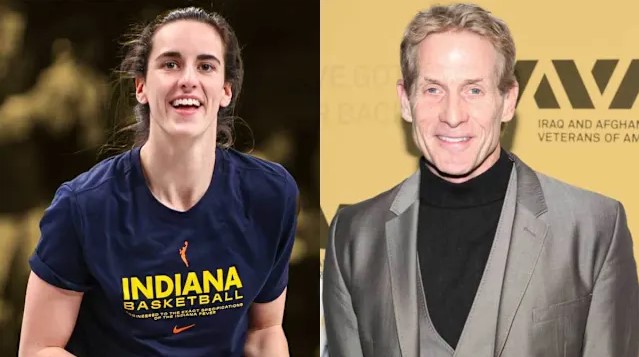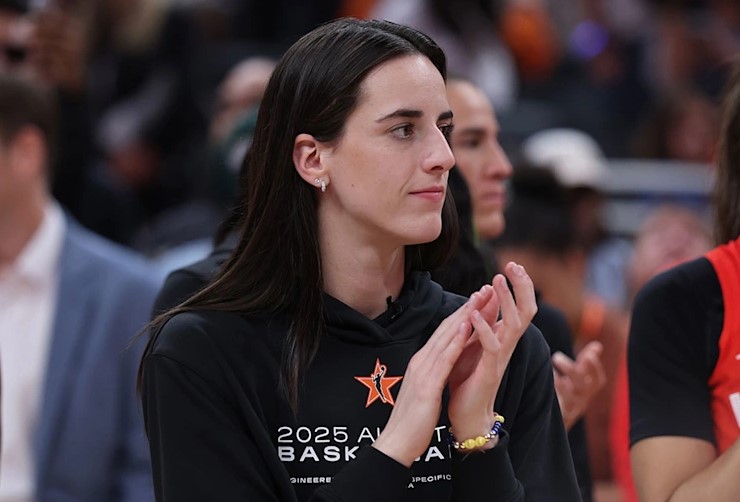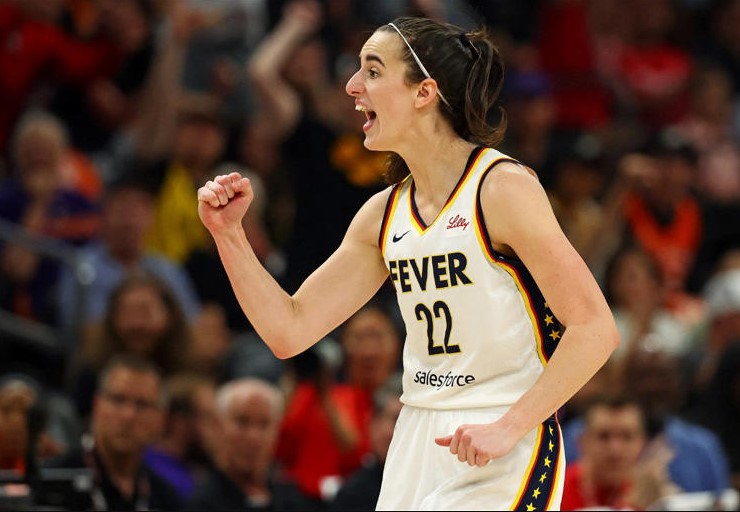“Let’s See How You Do Without Me” – Skip Bayless’ Bold Theory About Caitlin Clark’s All-Star Game Absence
When controversial sports commentator Skip Bayless speaks, the basketball world typically braces itself for another explosive hot take that will dominate social media discussions for days. His latest theory about Caitlin Clark’s absence from the 2025 WNBA All-Star Game represents perhaps one of his most intriguing psychological analyses yet, suggesting that the Indiana Fever superstar deliberately chose to skip the showcase event not due to injury concerns, but as a calculated demonstration of her irreplaceable value to the league.

According to Bayless, Clark’s decision to sit out the All-Star festivities was essentially a masterclass in strategic messaging, designed to prove to her critics and fellow players exactly how much the WNBA’s unprecedented growth and popularity depend on her magnetic presence on the court. The veteran media personality believes that after enduring months of dismissive comments from other players who downplayed her impact on the league’s surge in viewership and cultural relevance, Clark finally decided to let her absence do the talking in the most powerful way possible.
The timing of Bayless’ theory becomes particularly compelling when considering the broader context of Clark’s tumultuous rookie season, during which she faced constant scrutiny, physical targeting from opponents, and what many perceived as jealousy-driven criticism from established WNBA veterans who seemed uncomfortable with the attention she brought to their sport. Throughout this challenging period, Clark maintained her composure and professionalism, rarely responding directly to the negativity, which makes Bayless’ suggestion of a calculated silent protest all the more intriguing to basketball analysts and fans alike.

The evidence supporting Bayless’ controversial hypothesis extends beyond mere speculation, as the WNBA’s television ratings and attendance figures have consistently demonstrated Clark’s extraordinary drawing power throughout her inaugural professional season. When Clark takes the court, particularly in matchups against other rising stars like Angel Reese or established veterans, television viewership numbers routinely shatter previous records, while games without her presence typically see significant drops in audience engagement and overall interest from casual sports fans.
During his podcast discussion of this theory, Bayless emphasized that Clark’s reported ankle injury against the Connecticut Sun appeared relatively minor and routine, certainly not severe enough to prevent a competitor of her caliber from participating in what should have been the highlight weekend of her rookie season. This observation led him to conclude that her absence represented something far more strategic than simple injury management, particularly given her well-documented competitive drive and desire to excel in every basketball situation she encounters.
The 73-year-old analyst’s conviction in his theory was further reinforced by his prediction regarding the All-Star Game’s television ratings, which he confidently stated would fall significantly short of the previous year’s record-breaking 3.44 million viewers. His certainty that Clark’s absence would directly correlate with diminished audience interest reflects the broader understanding within sports media circles that she has become the WNBA’s most valuable commodity in terms of marketability and fan engagement.

However, critics of Bayless’ theory point to Clark’s well-established character and competitive nature as evidence against such a calculated protest, arguing that she has never demonstrated a tendency to avoid competition or use strategic absences as a form of communication. Her emotional investment in every game she plays, coupled with her genuine enthusiasm for team success over individual recognition, suggests that missing an All-Star Game would go against her fundamental basketball instincts and professional ethics.
The broader implications of Bayless’ theory extend beyond simple speculation about one player’s motivations, touching on deeper issues within the WNBA regarding recognition, jealousy, and the complex dynamics that emerge when a single individual’s star power threatens to overshadow established hierarchies within professional sports organizations. Whether or not Clark deliberately chose to send a message through her absence, the resulting conversation about her value to the league proves that her impact transcends traditional statistical measurements and enters the realm of cultural phenomenon.
While Skip Bayless’ latest theory may ultimately prove to be another addition to his extensive catalog of provocative but unsubstantiated claims, the underlying message about Caitlin Clark’s transformative impact on the WNBA remains undeniably accurate, regardless of her actual motivations for missing the All-Star Game festivities.